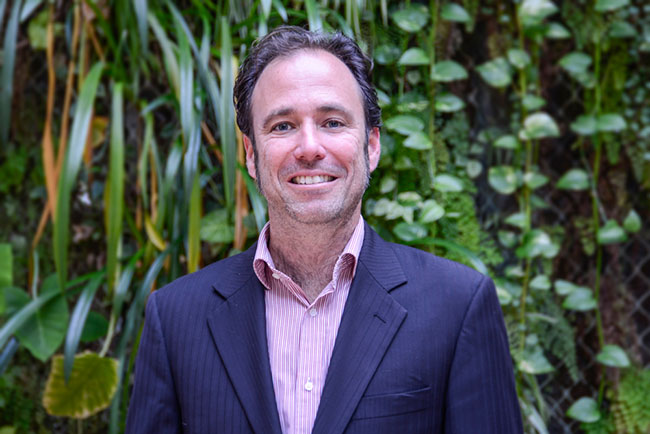 Anorexic patients should be allowed to refuse treatment if they are assessed as having capacity to make that decision, according to University of Queensland Law PhD candidate who won a recent faculty-level competition to pitch his thesis topic in a three minute pitch.
Anorexic patients should be allowed to refuse treatment if they are assessed as having capacity to make that decision, according to University of Queensland Law PhD candidate who won a recent faculty-level competition to pitch his thesis topic in a three minute pitch.
Sam Boyle, PhD candidate from the TC Beirne School of Law, was both the winner and a People’s Choice winner of the Faculty of Business, Economics and Law Three Minute Thesis competition on Friday for presentation: Capacity and treatment refusal: How law does and should deal with adults with anorexia nervosa who refuse treatment.
He will be competing this evening in the UQ 3MT final.
Mr Boyle said under current laws, anorexia nervosa patients may always be denied the right to refuse treatment, in a way that can be considered cruel and discriminatory.
His presentation critically analysed the legal concept of capacity, and presented an argument for assessing anorexic patient capacity, including an increased recognition of their rights and interests.
“I was inspired to understand more about this issue after reading about a very tragic case involving a woman called Emily,” Mr Boyle said.
“She was an intelligent 32-year-old who suffered terrible anorexia.
“She had been treated for years, but the treatment wasn’t working. She wanted the treatment to stop, but a court told the treating team that they had to treat her against her will, by force if necessary.
“The reaction to the case was negative, but seemed to ignore the legal situation that allowed it to happen. It inspired me to want to understand more about it; I wanted to develop a legal argument which could actually help someone in Emily’s situation.”
Mr Boyle was selected from ten research masters and PhD students. He received a top-up of research funds and will go on to compete in the UQ 3MT final next month and may proceed to the 2016 Asia-Pacific competition.
UQ Business School PhD candidate Chelsea Gill was runner up and also a people’s choice winner for her thesis presentation: Exploring the role of corporate retreats in restoring directed attention.
“I have an event management background so have always been interested in retreats and the wellbeing of people,” she said.
“In the current climate of information overload and competing demands, it can be difficult for employees to focus effectively on work tasks.”
Mrs Gill’s thesis argues that focusing attention was critical for employees to competently perform and organisations had a responsibility to restore employee attention.
Her research explores the impact of retreats for religious workers in improving their mental health and social wellbeing.
For further information about the BEL Faculty’s 2016 3MT presentations please visit https://bel.uq.edu.au/3mt-entry-summaries.



